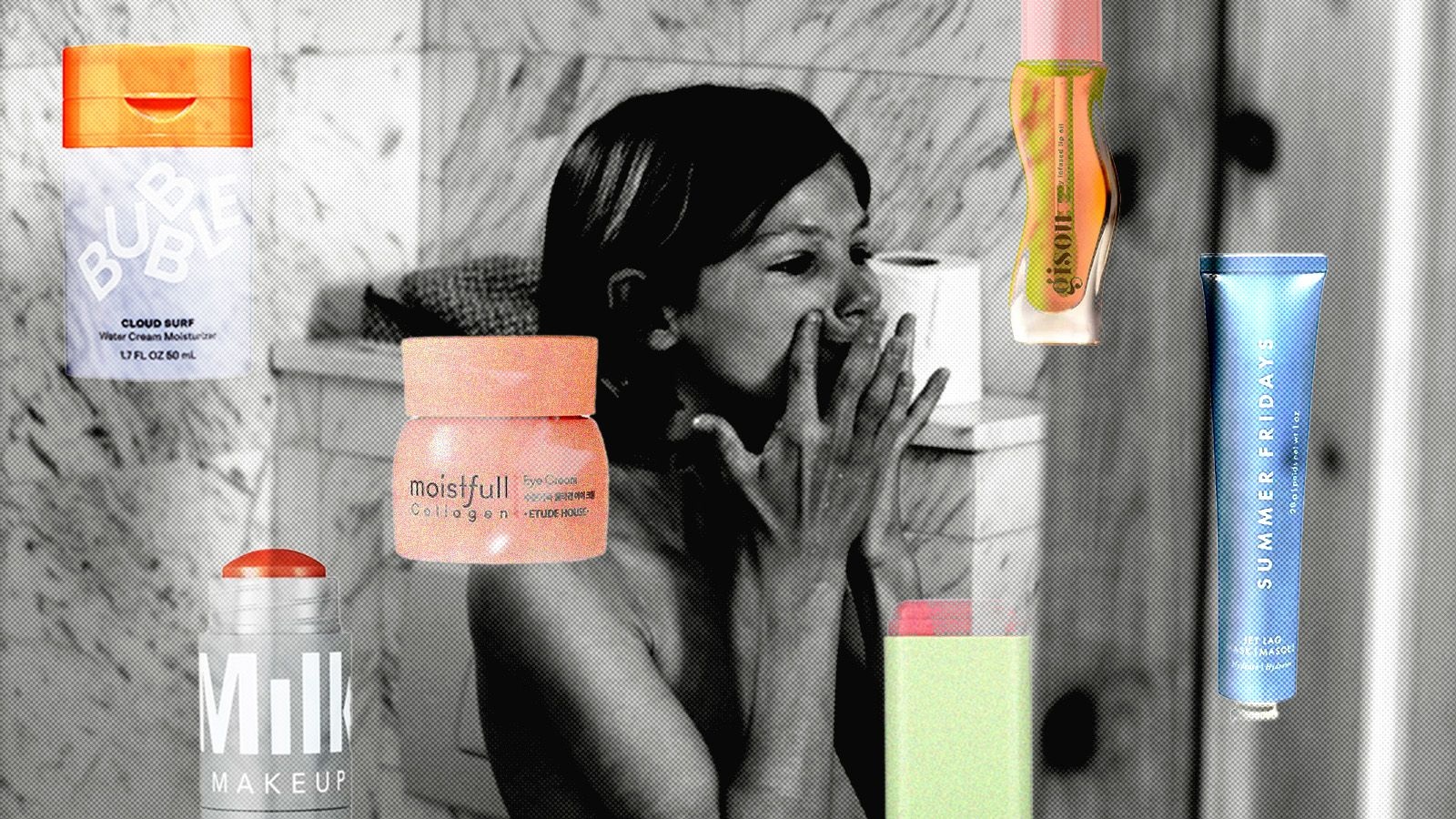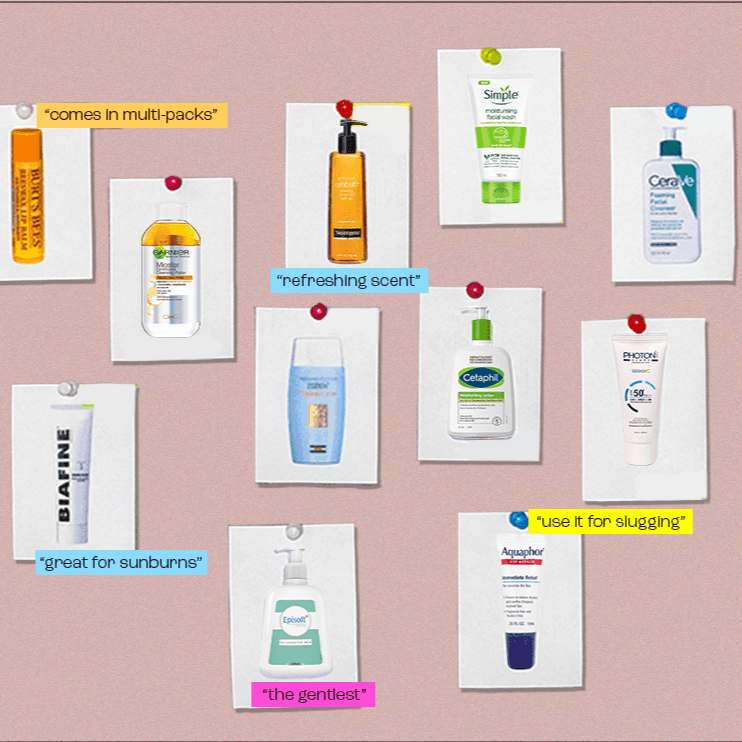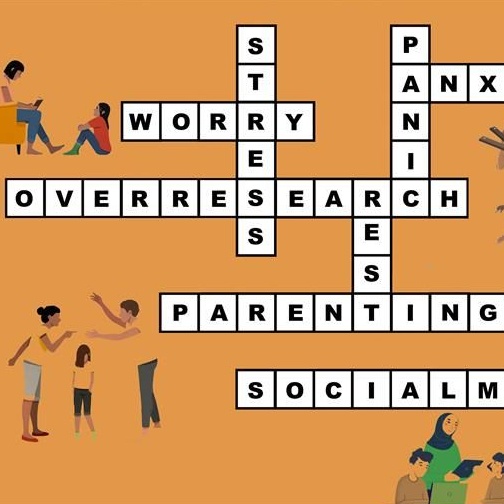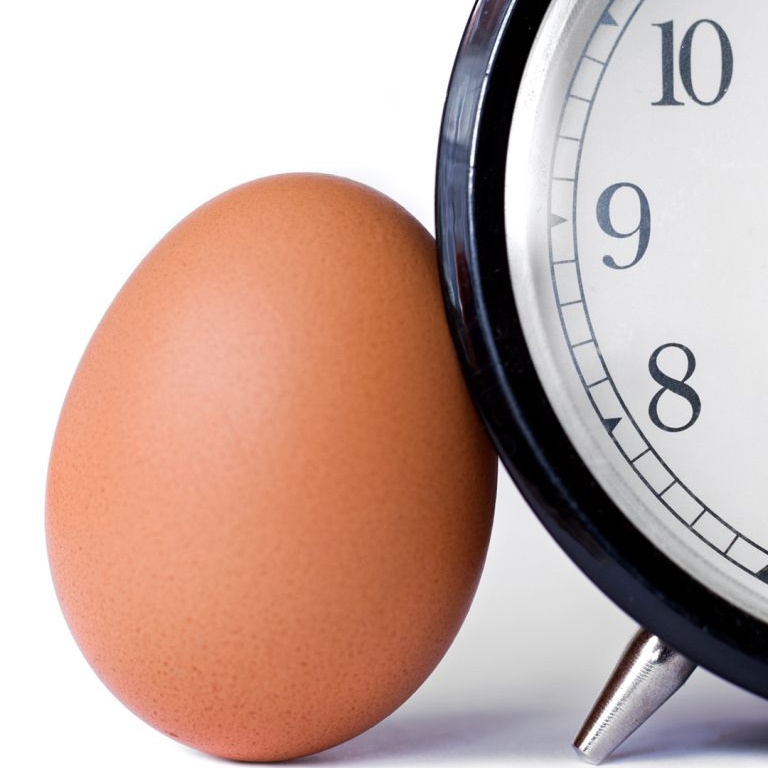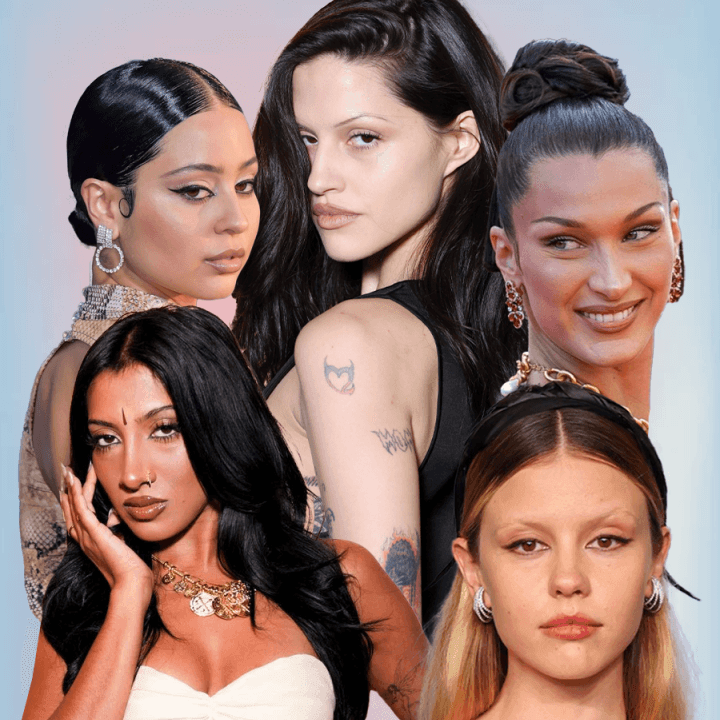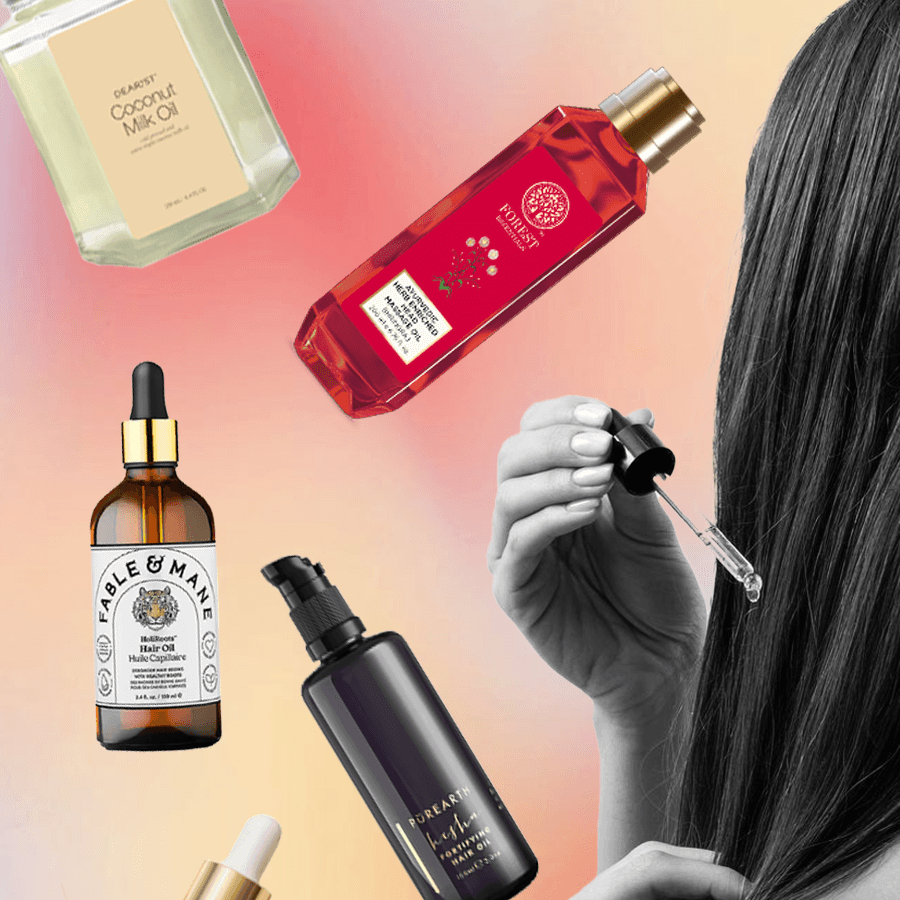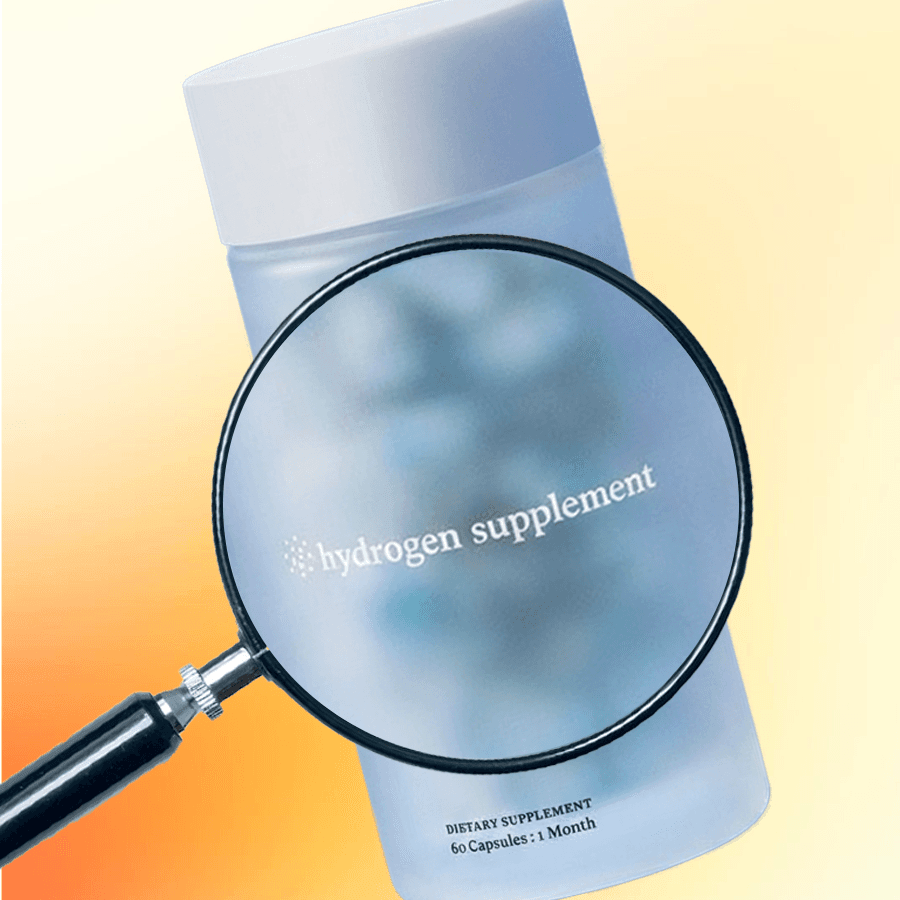“The first thing I do every morning is drink a glass of water. Staying hydrated helps flush out toxins and clear acne,” 12-year-old Tenzin Ogyen tells me over Instagram on the weekend, right before he returns to boarding school and loses access to his phone for another fortnight. The Gangtok-based tween takes his skincare very seriously; he watches K-dramas and follows beauty creators like Joan Day and Liah Yoo for inspiration.
After trial and error, Ogyen has finally locked in on a morning routine. The six-step process includes COSRX Salicylic Acid Daily Gentle Cleanser, Beauty of Joseon Ginseng Essence Water, Numbuzin No.4 Pore Zero Peeled Egg Toner Pad, and COSRX Snail Mucin Essence and Moisturiser, sealed in with Beauty of Joseon Relief Sun: Rice + Probiotics SPF 50+ because it’s “great for clogged pores”.
If that product list felt like a mouthful, it’s because it is, and it’s not light on the pocket either. The trendy skincare routine—with seasonal discounts—is just shy of ₹10,000, a hefty sum for many but especially a seventh grader. Ogyen shares his love for exfoliating on social media as well; amidst a sea of pick-my-outfit videos, there are Burger King hangs with his BSFs and selfies with Manish Malhotra (!). There are also GRWMs where the pre-teen creator is seen using Etude’s Moistfull Super Collagen Under Eye Concentrate and Pixi Beauty blushes.
This is a norm for most Gen Alpha. Ogyen’s friend @PrakriyaTamang also makes skin-loving content for her 20.8k Instagram followers, featuring serums from The Ordinary and dew drops from Glow Recipe, while @idk_Roopkatha receives PR presents from homegrown brands like Auli Skincare and Hilary Rhoda. Although breaking into your mum’s makeup cabinet to try on drugstore lipstick and blush is a tale as old as time, tweens today aren’t just tinkering with products—they are studying active ingredients like peptides and niacinamides and testing what works for their skin well before they hit puberty.
With early access to the internet, these young skinthusiasts are born into a generation that is well versed with beauty trends, and brands are paying close attention. Spotting a gap in the market, fledgling labels like YPlayZ and Tikitoro have shot up in the subcontinent with their kid-friendly bath and body products. Sammmm, founded by former Nykaa executives Mantosh Roy and Rishi Seth, focuses on providing ‘self-care’ products specifically designed for Gen-Z teens and Gen Alpha. The brand was born out of a conversation about self-care as self-love between Roy and his daughter Samara, after whom the brand is named, and its current offerings include a cleanser, a moisturiser, and a lip tint oil in colourful packaging.
Globally, Gen Z’s favourite pimple patch brand Starface is hoping to lure in more Gen Alpha with its new skincare offerings. Built with salicylic and hyaluronic acid, Star Wash comes with a mica-based shimmer that disappears with water, a glam-pilled attempt at making cleansing a fun activity. Similarly, Shai Eisenman, the founder and CEO of tween-favourite Bubble Skincare, told the Wall Street Journal that her company tailored their brightly-coloured packaging after running focus groups with teenagers.
And the attention to detail has paid off. “I use Bubble’s moisturiser and Glow Recipe’s dew drops because they have a nice aesthetic and suit all skin-types,” Mumbai-based Karishma’s* 13-year-old daughter explains. She also experimented with Drunk Elephant—because it was viral on YouTube—but soon decided that it was not a match for her age or skin. The tween takes pride in her collection of lip tints too: Summer Fridays mint lip gloss and Laneige’s lip sleeping mask rank high on the list of must-haves. Karishma reveals that until recently Sol de Janeiro’s body mists were all the rage at her daughter’s school. “They would give each other small perfume bottles as gifts and return gifts at birthday parties; my daughter has every fragrance from them.”
The numbers align: global net sales of Sol de Janeiro grew by 157 per cent year on year, amounting to $686 million in the financial year 2023-24. But Karishma’s daughter is quick to add that the fragrances are “so last year now”. The new crop of beauty buyers may get besotted easily, but they get bored just as rapidly. For many Gen Alpha parents, this always-on hamster wheel of trends is a meticulous balancing act.
Dubai-based Priti Mahajan often has conversations with her teen daughter on clean beauty, steering her towards safe ingredients, including rose water and coconut oil from Good Earth or a castor-oil based mascara from Forest Essentials. Similarly, Mumbai-based Sahana* has limited her 13-year-old to one new product a month to avoid overconsumption.
In case you’re in disbelief, unable to comprehend how tweens are already drawn into the capitalistic rut of modern beauty standards, you’re far from being alone. Writers, experts and even brands are sounding the alarm against this premature reliance on skincare. In her newsletter The Review of Beauty, reporter Jessica DeFino warns us about dismissing this love for skin-fixing products as frivolous girlhood. “They aren’t learning to understand themselves as human beings, but to perform themselves as girls,” she writes, adding that the long-term physical and psychological consequences could be dire.
Kiehl’s took a proactive stand by launching an online and in-store campaign that urges preteens to not buy their products, with captions like “childhood goes by fast”. On the other hand, Drunk Elephant and Bubble—two of the most coveted names for this demographic—have also advised their core customers against buying some of their products for skin safety.
Yet this has done little to deter Sephora-loving Gen Alpha, who were reportedly responsible for 49 per cent of skincare sales growth in 2024, as per the PHA Group. Young mums are also realising that a complete ban on Instagram-famous products is unsustainable and are negotiating a viable middle ground. “Even if I take away social media, she sees her friends’ cabinets and wants the same. It’s not just about skincare, it’s also about fitting into their peer group,” Karishma says, adding that showing each other their colour-coded product drawers has become a bonding exercise.
As an alternative, she is gently coaxing her daughter towards more skin-safe ingredients—her tween uses cold-pressed castor oil instead of mascara and calls it a “wonder oil”. Mahajan too has a game plan—her daughter can shop a handful of Laneige or Rare Beauty products but her access to them is restricted. She only gets to use them once in a while, for a friend’s birthday or a special occasion. “My daughter also has limited screen time; she only uses YouTube Shorts for five to 10 minutes everyday. This is helping shift her focus to meaningful pursuits like music and sports,” Mahajan adds.
For many tweens, skincare only begins at unclogged pores and zero blemishes; its true currency lies in name-dropping famed products in front of their friends. Collecting every scent of Rhode’s peptide lip treatment is the 2025 equivalent of gaining street cred by building a thick deck of Pokemon cards as a Y2K kid. (Of course, the big difference is that the lip tints cost upwards of ₹1,500 per tube and aren’t even available in India.)
This explains why Sahana’s* preteen daughter has 200-odd products sitting on her dressing table even though she’s not allowed to use toners, serums or fillers. It’s a diverse mix of brands too: Gisou, Dior, Summer Fridays, Goop, Milk, CeraVe and more. “Most of them are gifts from friends or mini hauls from Space NK and Sephora when we travel. My daughter cannot use any of them, but she gets them to make unboxing videos to share with her friends. They never post it anywhere—it just sits in their drafts,” she adds.
This fixation on beauty and wellness is slowly slithering towards kids under 10 as well. Bengaluru-based influencer Tanvi Mehta Srivastava has a six-year-old daughter who loves lip balms, and has a makeup set from Princess by Renée Cosmetics, the Indian brand’s child-friendly sub-label. Well aware of the impending tween-to-toner pipeline, the creator says, “She’s too young to be a Sephora kid. Right now, the makeup is for pretend play, not vanity.”
*Some names have been changed or withheld to protect the identity of the person.
